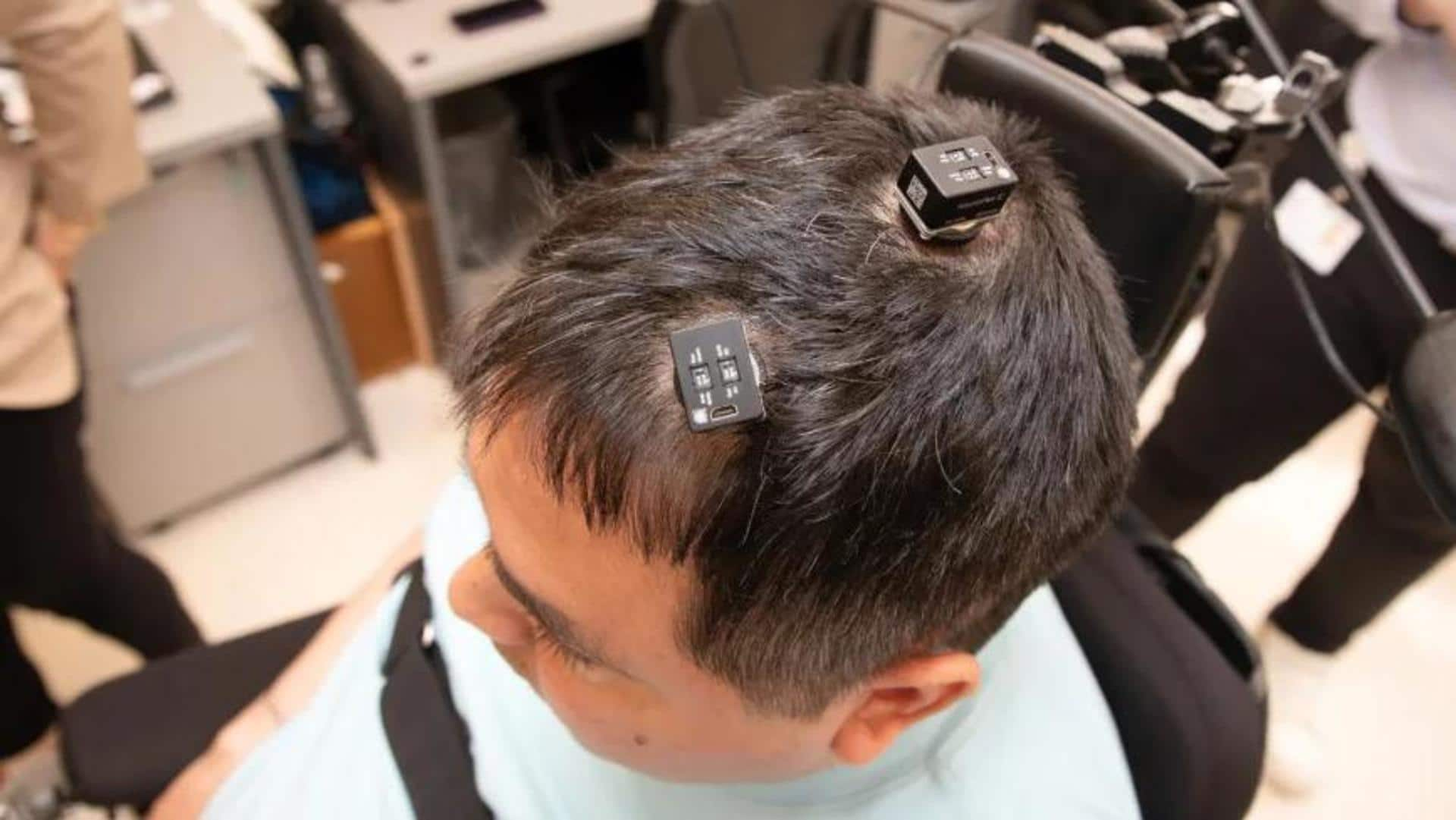
Paralyzed man regains mobility with AI implant in the US
What's the story
Keith Thomas, a New Yorker paralyzed from the chest down, regained some mobility and sensation thanks to an AI brain implant from Northwell Health's Feinstein Institute of Bioelectronic Medicine. Researchers mapped his brain with MRIs, pinpointing areas responsible for arm movements and touch sensation. They implanted microchips in his brain and attached sensors to his fingertips and palms, creating a system called "thought-driven therapy."
Details
Groundbreaking thought-driven therapy restored movement
This innovative therapy interprets Thomas's thoughts and sends signals to electrode patches on his spine and hand muscles. External ports on his head connect to a computer with AI algorithms that turn thoughts into action. Chad Bouton, the technology's developer, said this is the first time a paralyzed human's brain, body, and spinal cord have been electronically linked to restore lasting movement and sensation.
Achievement
Thomas's arm strength has doubled since study began
The thought-driven therapy could revolutionize the lives of people with paralysis, potentially enabling them to live more independently. Thomas's arm strength has more than doubled since the study began, and he can now feel new sensations in his forearm and wrist. This groundbreaking technology offers hope for a future where paralyzed patients can regain control over their bodies.